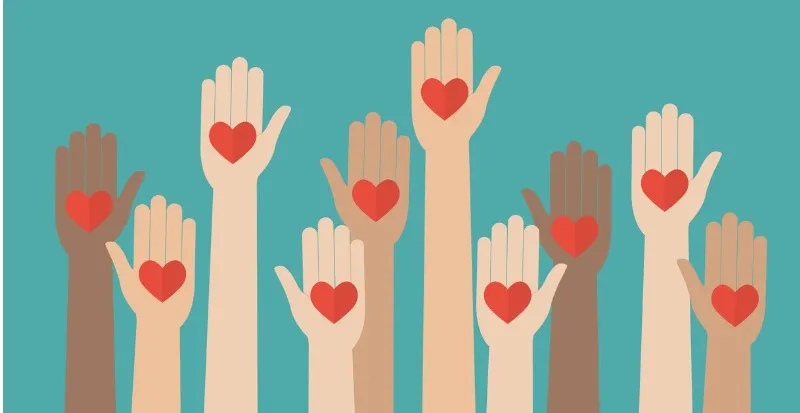Reaching Out in Your Community During COVID-19
If you are healthy and able to volunteer time or resources, giving back to your community can benefit your mental health while simultaneously assisting to those who need it. Of course, you should heed local and national health guidelines, practice social distancing, and hand-wash often. If you have traveled, been sick, or been exposed to someone who has COVID-19, you are discouraged from signing up for in-person volunteer programs.
- 2 min read
- health & wellness

The quote that is continually shared again and again across the internet:
When I was a boy and I would see scary things in the news, my mom would say to me ‘Look for the helpers. You will always find people who are helping’.
Fred Rogers
Mr. Rogers’ words ring truer than ever as communities around the world grapple with the effects of school, business, and event shutdowns; we see the incredible impact of people stepping up and coming together in new ways. Forbes listed 50 Ways Companies Are Giving Back, and in our local community, we see restaurants provide free meals to families who usually rely on school breakfast/lunch programs.
If you are healthy and able to volunteer time or resources, giving back to your community can have benefits on your mental health while simultaneously assisting to those who need it. Of course, you should heed local and national health guidelines, practice social distancing, and hand wash often. If you have traveled, been sick, or been exposed to someone who has COVID-19, you are discouraged from signing up for in-person volunteer programs.
Get Creative
Draw uplifting pictures to put in your windows or create inspiring chalk art on the streets around your house. You could also use the time to write letters to friends, family, deployed members of the military, senior citizen centers in quarantine, or hospitals. Take the time to practice being thankful for all the people who are working hard to keep communities safe and prevent the spread of COVID-19.
Join a Reach-Out Program
As elderly citizens are told to stay at home and avoid crowds, to decrease the feelings of social isolation and loneliness, you can use Zoom, Facetime, or other calling systems to keep in touch with elderly family members. Some organizations, such as Call to Care, link you with someone, and allow you to check-in via a text or call.
Volunteer
Research and contact your local food bank, baby supply organizations, meal delivery services for the elderly, and animal shelters. Many nonprofits need more help than ever to keep up with the increasing demand for food, shelter, and aid.
You can contact local branches of the United Way and the Red Cross].
Donate
Donations can be financial, but with difficult economic times, they may not be feasible for everyone. Donations can also take other forms, such as buying takeout from local restaurants or ordering products from small businesses.
Blood donations are also in high demand to meet the needs of healthcare systems. Personal Protective Equipment (PPE) is also in dangerously short supply, leading hospitals and healthcare workers to request any business or people with large supplies to donate their PPE. Talented people around the world have even begun sewing masks to donate to local healthcare professionals.